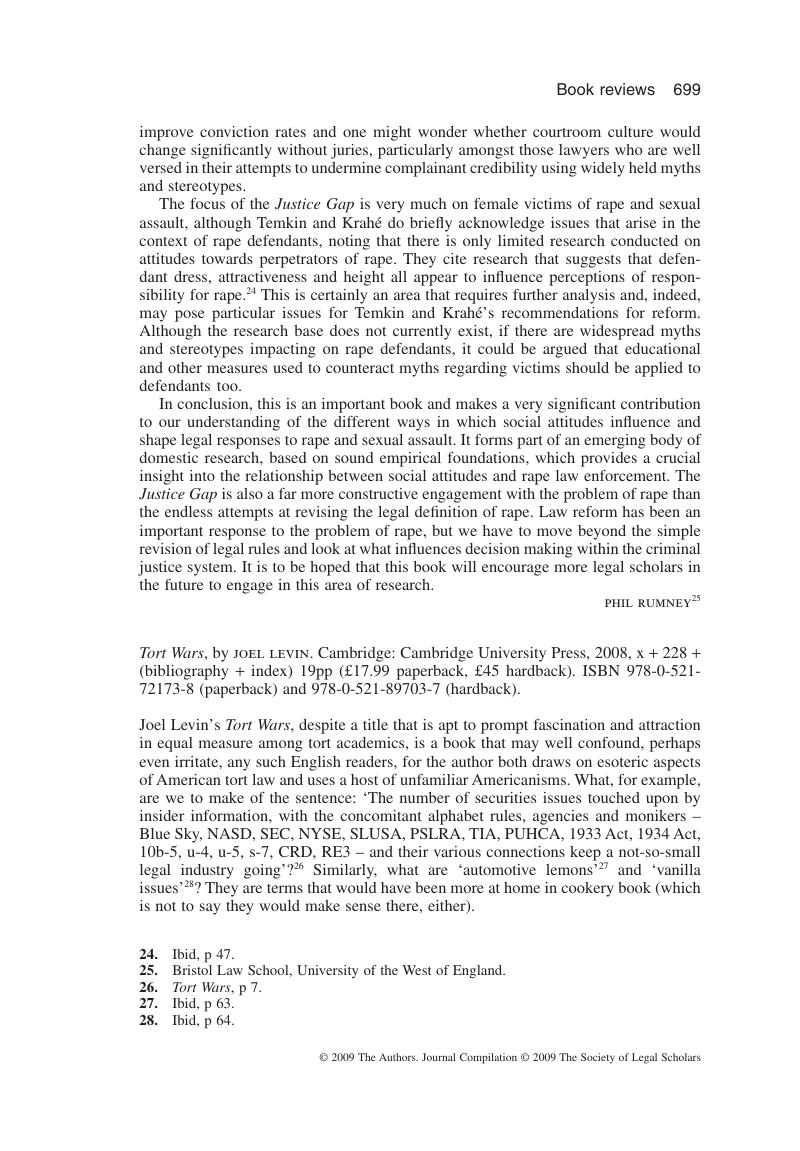No CrossRef data available.
Article contents
Tort Wars, by Joel Levin. Cambridge: Cambridge University Press, 2008, x + 228 + (bibliography + index) 19pp (£17.99 paperback, £45 hardback). ISBN 978-0-521- 72173-8 (paperback) and 978-0-521-89703-7 (hardback).
Published online by Cambridge University Press: 02 January 2018
Abstract

- Type
- Book Review
- Information
- Copyright
- Copyright © Society of Legal Scholars 2009
References
26 Tort Wars, p 7.
27 Ibid, p 63.
28 Ibid, p 64.
29 Ibid, p 40.
30 The Don Pacifico Affair centred on a number of Greek youths sacking the house of a wealthy Englishman resident in Athens. The youths were connected, albeit remotely, to the Greek government such that restitution was demanded from the Greek government. When the Greek government refused to pay. the then Foreign Secretary, Palmerston, ordered a blockade of the Greek coast which Gladstone opposed.
31 Tort Wars, p 50.
32 Ibid, p 3.
33 Ibid, p 7.
34 Ibid.
35 Ibid, p 89.
36 Ibid, p 70.
37 Ibid, p 81.
38 Ibid, p 71.
39 Ibid.
40 Ibid, p 70.
41 Ibid, p 81. Although Levin insists that both doing, and being seen to be doing, justice are crucial, we are not told what version of justice he has in mind. However, we may reasonably intuit from the foregoing that he has in mind something other than corrective justice.
42 Ibid, p 117. Elsewhere (p 220) he states that ‘the battleground of tort... [is] the arena where social conflict is resolved’; and the social conflict in issue is that between (for defendants) ‘laissez-faire, libertarian, free-market’ ideals, on the one hand, and (for claimants) ‘paternalistic, egalitarian’ ideals, on the other (p 211).
43 Ibid, p 177.
44 Ibid, p 210.
45 Ibid, p 169.
46 Ibid.


